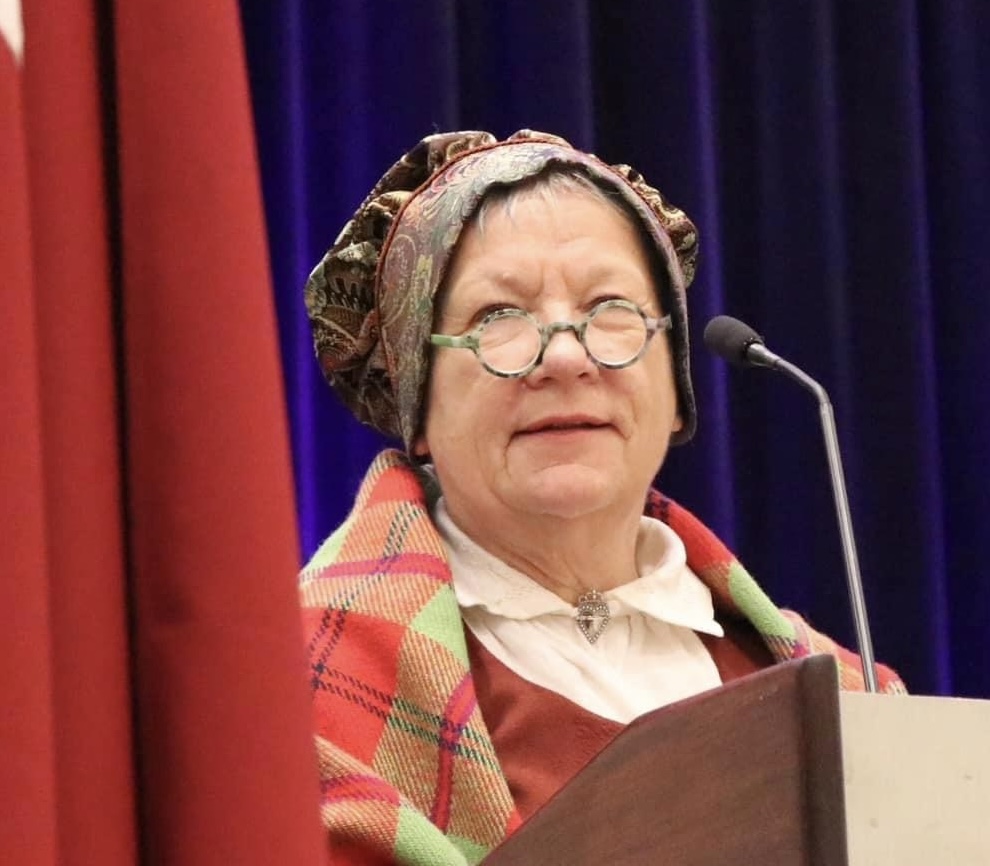Thoughts on Independence Day

…Be it through dust or the passage of centuries,
Through time without end and the choking smog of death –
God will raise our flag,
For generation upon generation.
The day draws near – we, blessed for our homeland’s sake
Let us become like the sea, our waves endlessly breaking!
The time draws near – our presence in the battle awaited;
Let us become like the mountains and rise
toward a new day,
toward our God!
Toward a new heaven and a new earth!
Andrejs Eglītis “Prayer of Latvians”
In 1943, the Lutheran congregation in Kuldīga, facing the reality of continued foreign occupation, announced a literary and musical competition on the theme: “The Prayer of Latvians to God”. The winner was Andrejs Eglītis. His submitted work captured the signs of the times becoming the libretto for Lūcija Garuta’s cantata: “God, Your Earth Is Aflame!” A few short months later, fragments of this piece found their way into exile across the Baltic Sea. It was frequently performed as an expression of the tragedy Latvians, dispossessed of their homeland, felt. Only in 1999 was the complete cantata heard in Latvia, for the first time since its initial performance in 1944.
It was eighty years ago this Fall that Latvians found themselves fleeing from all they knew and loved. Recalling this, and bearing in mind current political and military developments near Latvia, together with the confusion that the election of the new president of the USA has brought, seems to prompt the question: when will Latvians ever feel fully free? When will they no longer have to look over their shoulder at what neighbouring powers are doing?
These are familiar questions. Today, however, circumstances are different from the lived experience of Latvians during the Second World War. Latvia is a member of NATO and significantly, the title of the NATO Multinational Battlegroup in Latvia, headed by Canada, is “Operation REASSURANCE”. By 2026 this will be at brigade level.
History also has lessons of hope and endurance to share. The course of Latvia’s gaining independence can be attributed to multiple factors. Was it the result of skilful diplomacy, the fortuitous convergence of external political and military circumstances or God’s handiwork, or any or all of these? Yet independence did come to this small nation on the Baltic Sea. Maintaining this has been another matter. On November 11, Lāčplēsis Day, Latvians remember those who were ready to make the ultimate sacrifice to defend their country and its people be it during the War of Independence, or the Second World War.
Not all who, against their wishes, found themselves stepping into boats on the shore of Kurzeme becoming refugees for, as they hoped at the time, only a brief period, were destined to experience the liberation of their homeland. However, they created a new beginning for themselves whilst at the same time continuing to honour their heritage and reminding the world of their fate. And freedom did return. Those who were born and grew up in the exile Latvian community are inheritors of their conviction of a return to Latvia’s independence.
These signs point to only one conclusion: Latvia’s and its people’s destiny is to be free; it must be independent. This statement is both a source of reassurance and a call to action. Wherever Latvians find themselves today, we remain the heirs of the gift of Latvia’s freedom. Maintaining this has been entrusted to us, as too, has honouring all those who have fought for and continue to fight for its wellbeing and the maintenance of democratic values in Latvia.
Latvia is, and shall be, free. We are the mountains that rise against a new day, we are firm, steadfast. We are the hills of which Eglītis writes in his poem, those who rise to greet a new day; we are strong, immovable in our conviction. May others threaten us, we are and continue to be Latvians, our hearts filled with freedom and love of our ancestors’ homeland.
Ilze Kuplēna-Ewart
Board Chair
Latvian National Federation in Canada
2024 Latvia’s Independence Day
